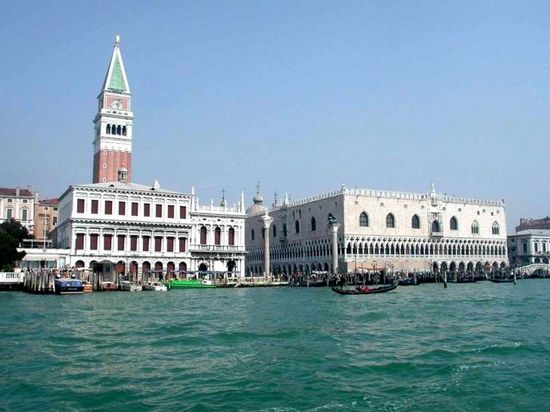
About the UK government’s decision to ban the anti-Islamist Dutch MP Geert Wilders from entering the country (see my two previous posts on this) there is an interesting piece up at Pajamas Media by Mike McNally, a British journalist who blogs at Monkey Tennis Centre. He says he recently changed his mind about the war against the extremist Islamists, a war which he believed his country could never lose. The Islamists “could never defeat us with terrorism.” That was the way he used to think … “but defeat us they have,” and “not by destroying buildings and subjugating the British people—but by destroying our values and subjugating our freedoms.”
Here are some excerpts from his post:
Although they won’t admit as much, government ministers banned Wilders not because they thought he would incite violence, but because they feared that Muslims enraged by Wilders’ views on Islam might react violently to his presence. And like the jittery saloon owner in countless Westerns, they don’t want no trouble, mister.
[…]
The proper response to these threats would have been for the government to put measures in place to ensure Wilders’ safety, and to deal firmly with anyone who attempted to cause trouble. However, as this government has proved time and again, faced with the prospect of lawlessness, it prefers to take the easy way out by eliminating all risk of an offense being committed rather than dealing with criminals.
[…]
No one even pretends that a person expressing views similar to Wilders’ with regard to Christianity or Judaism would be banned from entering the UK. That’s because the people who might take issue with such sentiments tend to write angry letters, rather than blowing themselves up on buses. While the government has banned some of the more outrageous purveyors of Islamist ideology, others, such as Hezbollah spokesman Ibrahim Mousawi, have been allowed to enter Britain. And Lord Ahmed himself has, in the past, had no problem with inviting extremists to speak at the House of Lords — just so long as they’re his kind of extremist.
Meanwhile, on the streets of London and elsewhere, radical Muslims routinely call for Jews and British soldiers serving in Iraq and Afghanistan to be murdered, while the once respected British bobby stands there twiddling his thumbs. The double standard is clear and the implications for free speech and other liberties are chilling: If you threaten violence, you will be appeased. If you call attention to extremism, you will be silenced. If you practice tolerance, you will be trampled on.
That “double standard” is just one of the many self-loathing attitudes shown by most Western governments, mainstream media, and academics, but our sorry pligh couldn’t be better summed up than by McNally’s words. And I suppose we must be grateful to him for taking the civic courage to conclude his argument with these words: “The country that exported democracy to much of the world has given up the fight to preserve its own freedoms […].” Needless to say, but said anyway, “the manner of its capitulation should serve as a warning to American and other civilized nations.”
P.S. Cassandra has a post with more info about the subject and helpful links.





 The decree provoked shrill, even hysterical reactions by the opposition. Antonio Di Pietro, for instance, described the decree as ”an extremely serious danger for democracy,” which is frankly a bit silly. They often seem to have not the slightest idea of what they’re talking about, or rather they are attempting to make people forget the real issue … But I don’t want to spend too many words on the subject here. Rather, I would draw the attention to what Cardinal Carlo Caffarra, referring to the case of Eluana Englaro, said
The decree provoked shrill, even hysterical reactions by the opposition. Antonio Di Pietro, for instance, described the decree as ”an extremely serious danger for democracy,” which is frankly a bit silly. They often seem to have not the slightest idea of what they’re talking about, or rather they are attempting to make people forget the real issue … But I don’t want to spend too many words on the subject here. Rather, I would draw the attention to what Cardinal Carlo Caffarra, referring to the case of Eluana Englaro, said 
 That’s the
That’s the  Though results are still preliminary, they show that voters strongly rewarded Prime Minister Nouri al-Maliki for his forceful action against extremist militias and his secular nationalist agenda -- and punished religious parties perceived as too sectarian or too close to Iran. The nonsectarian alliance of former prime minister Ayad Allawi also appears to have done well, and nationalist Sunnis gained influence in areas where they had lacked it because of previous election boycotts. In short, Iraq appears to have taken a step toward becoming the moderate Arab democracy that the Bush administration long hoped for.
Though results are still preliminary, they show that voters strongly rewarded Prime Minister Nouri al-Maliki for his forceful action against extremist militias and his secular nationalist agenda -- and punished religious parties perceived as too sectarian or too close to Iran. The nonsectarian alliance of former prime minister Ayad Allawi also appears to have done well, and nationalist Sunnis gained influence in areas where they had lacked it because of previous election boycotts. In short, Iraq appears to have taken a step toward becoming the moderate Arab democracy that the Bush administration long hoped for.


 And five centuries after his birth he not only remains—thanks to his exceptional buildings, which somehow encapsulate the legacy of Italian Renaissance architectural practice—Europe’s greatest architect, he also deeply influenced the theory and understanding of architecture through his celebrated treatise
And five centuries after his birth he not only remains—thanks to his exceptional buildings, which somehow encapsulate the legacy of Italian Renaissance architectural practice—Europe’s greatest architect, he also deeply influenced the theory and understanding of architecture through his celebrated treatise





